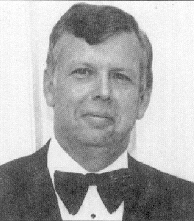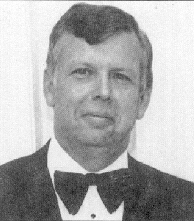
Finest Hour 171
Books, Arts & Curiosities – If Only…

March 20, 2016
Finest Hour 171, Winter 2016
Page 41
Review by Manfred Weidhorn
Richard M. Langworth, Churchill and the Avoidable War: Could World War II have been Prevented? Moultonborough, NH: Dragonwyck, 2015, 122 pages, $7.95.
ISBN 987-1518690358
 The origin of Mr. Langworth’s book is Churchill’s 1945 labeling of the Second World War as “The Unnecessary War.” Churchill proceeded to offer two “ifs,” one having to do with the United States and the other with the League of Nations. It should be noted that of the four ubiquitous conjunctions, “and” is decidedly dull, “or” involves choice, “but” is often a weasel word (“I believe in absolute free speech, but this is too much,” meaning you do not believe in absolute free speech), and “if” is a reality re-constructor (“If pigs had wings”). “If” presumes to improve on God’s creation of the world, as well as to challenge our reliance on the factual and the mundane. It is a product of, and tribute to, the imagination. And it is, of course, at the heart of counterfactual history. “Much virtue in ‘if,’” says the Bard.
The origin of Mr. Langworth’s book is Churchill’s 1945 labeling of the Second World War as “The Unnecessary War.” Churchill proceeded to offer two “ifs,” one having to do with the United States and the other with the League of Nations. It should be noted that of the four ubiquitous conjunctions, “and” is decidedly dull, “or” involves choice, “but” is often a weasel word (“I believe in absolute free speech, but this is too much,” meaning you do not believe in absolute free speech), and “if” is a reality re-constructor (“If pigs had wings”). “If” presumes to improve on God’s creation of the world, as well as to challenge our reliance on the factual and the mundane. It is a product of, and tribute to, the imagination. And it is, of course, at the heart of counterfactual history. “Much virtue in ‘if,’” says the Bard.
Langworth lines up, like balls on a pool table, the key junctures when events could have taken a different course. The writing is compelling, the documentation rich, the arguments persuasive. Other biographers and historians have, to be sure, dealt with these flashpoints, but only in the setting of a narrative that encompasses numerous other issues. The virtue of this approach is to focus entirely on several isolated incidents and trace their common theme. The power of Langworth’s handling of the theme is that he avoids dogmatic folly. He repeatedly invokes a necessary skepticism: “We will never know,” “We do not know,” “We know now” what was not known “at the time.”
Several cases are painfully poignant. First came the Rhineland crisis, when Hitler was scared stiff about an Allied reaction, and his lightly armed small force, instructed to retreat at the first sign of resistance, was easily outmatched by nearby French forces, which (alas!) remained dormant. Could he have survived politically the embarrassment of a retreat?
Next came the annexation of Austria, where the Wehrmacht performed less like the fearsome military machine of 1939–41 and much more like the soldiery in a Viennese operetta. That these facts were either not observed or not disseminated by the intelligence agencies of Britain and France is only one more example of the rule that “intelligence” is a misnomer.

2025 International Churchill Conference
Finally, Chamberlain has been much lampooned for misreading Hitler. But Langworth points out what were greater errors of judgment: The Prime Minister would not consider some sort of arrangement with Russia, thereby making the Stalin-Hitler pact inevitable, and he did not respond to FDR’s proffered hand. The historical irony is that these were precisely the nascent superpowers that became necessary allies in the war that followed, a war that could have been avoided by responding to the feelers when cooperation was helpful rather than later when it was unavoidable. What Chamberlain lacked were Churchill’s strengths—imagination and the study of history.
Churchill himself played this game of counterfactual history: in his essay on Lee winning at Gettysburg; in a passage in The World Crisis on how the postwar peace deliberations might or should have gone; and in a passage in his memoirs of the Second World War about how his own reputation would have been destroyed if his government had fallen as a result of the two votes of no confidence in 1942 in the wake of numerous disasters. But he correctly warned that once one starts down this road, the “ifs” ramify in all directions. The problem is that beginning with a single hypothetical alternative action assumes all other events would remain unchanged.
Here are some more “ifs” which should temper any confidence in interpreting events. If Hitler had been assassinated in 1937, he would have gone down in history as a martyr and one of Germany’s greatest leaders. If assassinated in late 1941, on the eve of the turning of the tide, he would have been seen as a military genius, and the disasters that marked 1942–45 would have been ascribed to the presumed incompetents who replaced him. So for educating the German people and the Nazi camp followers about the self-destructiveness of the man they worshipped, and for disabusing innocent bystanders, it was necessary for the horrors of 1942–45 to ensue under his brilliant command. What a costly education about “if”!
That might suggest that sometimes, at least, it is best that things went the way they did. Of course, the other plausible objection to this seductive game of counterfactual history is that there never was a chance for history to go in any way other than the way it did. Like water finding its level, history is possibly constrained by the facts and causes and the iron laws of its development. As Pope versified and Hegel philosophized, for better or worse, “Whatever is, is right.” And so Langworth’s jeu d’esprit, at once pleasant to read and sad to contemplate, is but a vacation from reality.
Manfred Weidhorn is Professor Emeritus of English at Yeshiva University in New York City. He is the author of A Harmony of Interests: Explorations in the Mind of Winston Churchill (1992).
Subscribe
WANT MORE?
Get the Churchill Bulletin delivered to your inbox once a month.



